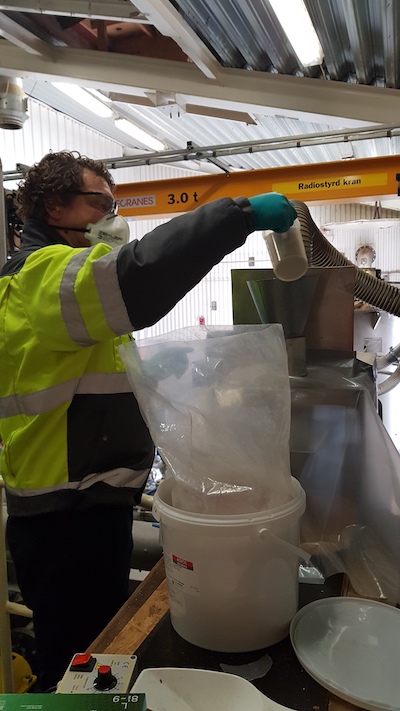A new XRF analysis develops high yield pulp with even sulfonate distribution at fiber level for improved renewable packaging
This project addresses the main challenges of using environmentally friendly, renewable packaging materials due to the widespread use of plastic in the packaging industry. This interdisciplinary project aims to address the uneven distribution of fiber sulfonation and softening in wood chips, which is currently poorly understood at a micro-level. After impregnation, the distribution of sulfonation […]
NeoPulp – New perspective to the development of pulp fibre properties
Heterogeneity is one of the fundamental scientific and technological challenges of all bio-based materials. The research area of NeoPulp is pulping and papermaking processes. We plan to study the heterogeneity between fibres that affects both process performance and the properties of current and new fibre-based materials. This is a largely unexplored research area where the […]
Improved uniformity of the fibers liberated in the kraft pulp digester
This project sets out to elucidate mass transport characteristics during delignification of wood chips as a means of understanding and controlling non-uniform delignification effects, associated to low efficiency and poor property control in the current pulping processes. To obtain information on local variations of delignification effect in a wood chip, the treated chips will be […]
Energy efficiency and modelling of vacuum dewatering in modern tissue machines
The project is a research coproduction between the research environment Pro2BE at Karlstad University, Valmet and Albany International about energy efficiency of tissue production. The project is aimed at acquiring deeper knowledge about tissue vacuum dewatering and at modelling vacuum dewatering during tissue production, both with a conventional tissue manufacturing method (DCT) and with Through […]
Preparation and use of lignocellulose nanomaterials in energy storage devices
Cellulose nanomaterials (CNs) obtained from fully-bleached (lignin-free) chemical fibers, such as cellulose nanoparticles (CNPs), cellulose nanofibers (CNFs), microfibrillated cellulose (MFC) have been a topic of extensive research during last decades since they constitute a biodegradable, renewable and naturally abundant resource with an important scientific and technological potential. However, the bleaching process is an energy-intensive process […]
Efficient Washing of Paper grade pulp in the kraft process
The project contributes to strengthened Swedish competitiveness through its expected research results and new fundamental knowledge for the development of an efficient pulp washing process and thus through an increased pace of innovation in the transition to a circular economy. After pulping the wood chips, the resulting pulp fibres and cooking liquor are separated in a […]
The kinetics of lignin extraction in oxygen delignification.
The current and future environmental challenges call for improved and more sustainable processes in the pulp industry. To contribute to a sustainable and competitive Swedish bioeconomy the pulp industry needs to increase efficiency without increasing the use of hazardous chemicals. Oxygen delignification is a unit process that has been used in pulp mill fiberlines between […]
Multi scale modeling of the delignification kinetics during kraft cooking
The kraft process is today the dominant industrial technology for the production of pulp from wood.In this process, wood chips are boiled with chemicals in order to dissolve lignin, hemicellulose andextractives. The process itself contains several complex mass transport mechanisms, where thechemicals are to be transported into the wood chip and then further into the […]
Process-adapted biobased assortments through novel development of the steam explosion process

The aim of the project is to, from softwood bark, develop and provide semi-manufactured industrial commodities with the following properties: a) Low content of process-disturbing/inhibitory substances during steam pretreatment b) Enhanced enzymatic digestibility c) High density and manageable properties for storage and transport Project partners: Swedish University of Agricultural Sciences, Valmet, Bio4Energy
EcoSys – Eco-effective processes and systems
The main purpose of EcoSys is to develop and implement energy-saving technologies at production units producing mechanical pulp with high wood yield (> 90%) and thus also demonstrate and further improve the environmental and sustainability aspects of mechanical pulp manufacturing. Mechanical pulp is durable and resource efficient since it is manufactured with a very high […]
ModDD – Process modeling and new technical solutions for increased production rate

The aim of the project is to provide knowledge on how double disk refining can be more energy efficient. To increase the process efficiency it has been shown important to have a high production flow through the refiner and also apply large forces on the fiber material in the refiner gap. This to reduce hysteresis […]

